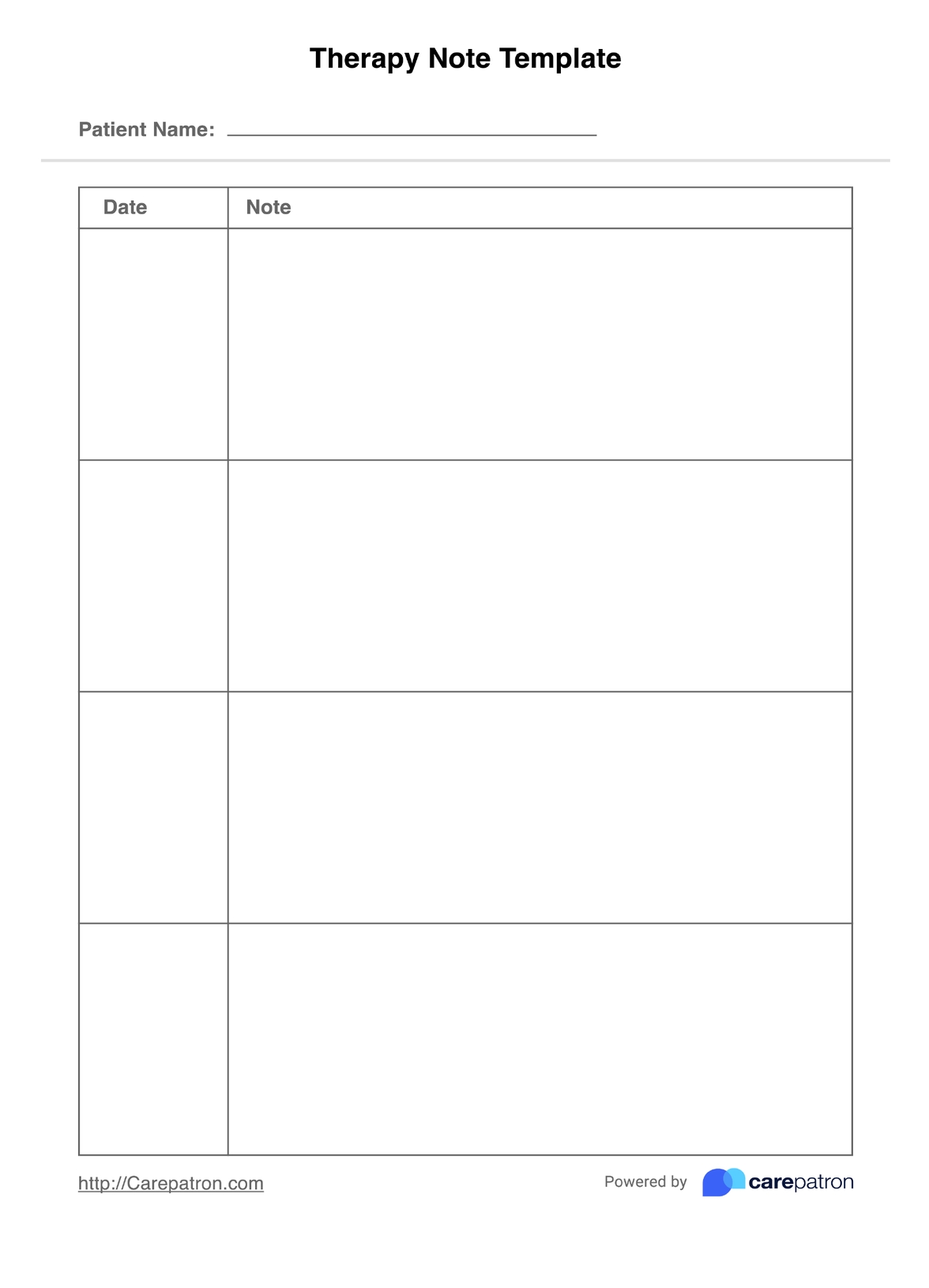The contents of a therapy note will differ depending on the specific session that you have with a client, but they should typically cover your general thoughts, ideas, hypotheses, or observations that you’ve had.

Therapy Notes Template
Implement this intuitive therapy notes template into your business and achieve improved documentation, higher accuracy, and better clinical outcomes: all while saving time.
Therapy Notes Template Template
Commonly asked questions
No. Unlike progress notes, you are not legally required to share your therapy notes with your patients. There are some situations where patients may request access to your private notes and you may have to accept this request, but these occurrences are rare.
Once again, this is dependent on the content of the session and the information that you want to record. Because you’ll also need to be writing progress notes after your sessions with clients, you may choose to only write therapy notes after an important or comprehensive session. You may also find that sometimes your therapy notes are only a few lines whereas other times they could be a full page. At the end of the day, as long as you are detailed, accurate, and honest, the actual length of these notes doesn’t matter.
EHR and practice management software
Get started for free
*No credit card required
Free
$0/usd
Unlimited clients
Telehealth
1GB of storage
Client portal text
Automated billing and online payments











